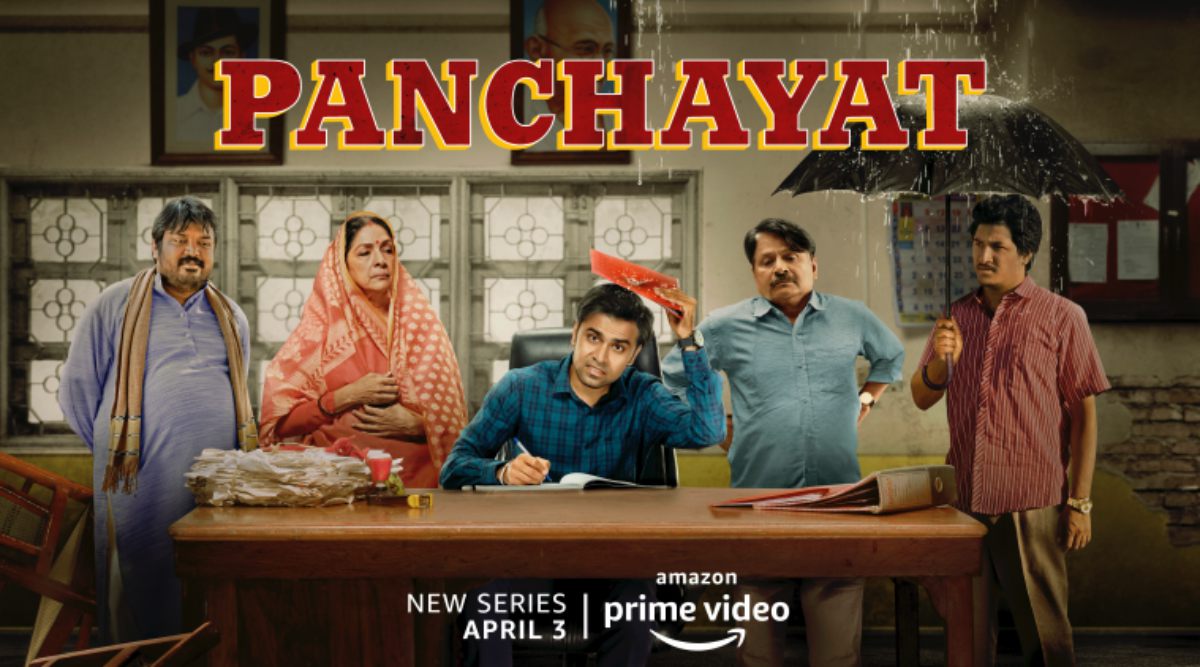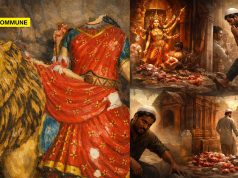
Panchayat is a cute story of a city bred man, Abhishek Tripathi (played by Jitendra Kumar), who comes to a village in Uttar Pradesh to work as a Secretary at the Village Panchayat office. He is the typical mediocre fresh engineering graduate that we come across in any college less than the league of the IITs and NITs, whose only mission in life is to crack the Common Aptitude Test and get into IIM so that he can get a white collar job and end with an even whiter wife. But, not all of us get what we want. Abishek blames himself for not getting a better job in the city to lead a ‘chill life’. To add to his frustration, his close friend who earns a handsome at a corporate in a city keeps offering him ‘gyan’ to explore the unexplored.
However, Abhishek on the other hand is frustrated with this job. He feels that it is a punishment for not working hard in college. He thinks that this job is just for the time being and decides use his non-working hours to study. But viewers already know that the village will throw up challenges that would disturb his pursuit.
From then on starts the experiences of Abhishek Tripathi in the village of Phulera. The Amazon Prime series consists of one Season with eight episodes (hopefully it does not stop with one season). With each episode just around 30-35 minutes, a binge-watch is recommended, as it would heighten the mood and the feel of the whole series. The continuity would actually make it even more funnier than when watched without breaks than otherwise.
Each episode has cute and heartwarming moments just like how when a city person encounters when he/she visits a village. However, Abhishek tends to look at only the flies and mosquitoes in the village.
The mantra of each episode is simple – keeping it simple. All episodes starts as one, ends as one. The soul of the series is maintained all throughout, until the final episode, even until the final cut.
The main objective of the series was probably to entertain and make sure the audience do not stop it midway and move on to something else. Hence, there are enough funny moments, probably the best in recent times, to keep us hooked on to the series. Even though there aren’t too many characters in this series, just the five or six regulars keep tickling our ribs. The exchanges between “Rinky ki paapa” and “Rinky ki mummy” are a delight. The ending of the 4th episode – “Computer Nahi Monitor” is probably the funniest of all. The episode on the Aatmaram-Aarav debate also evokes laughter. Also, the build-up leading up to the fight sequence between the four lead characters and the Babloo-Dabloo gang are hilarious. Okay. All episodes are dashed with humour that tt is impossible to have a straight face till the end.
The sequences are quite natural in its entirety, with some beautifully crafted sequences, with heartwarming imagery and background score. The depiction of the village in this series is realistic. The villagers live happily with what they have.
Abhishek Tripathi’s character is designed in a way that shows how the “city” views the villages. Though Abhishek does not outrightly dismiss the village and its people, or look down on the people of the village, he still blames himself for ending up in this “godforsaken” place. He feels that this job is a deterrent to his ambitions, that he will have to find a way to move to a place where he can chill out with his friends on a Friday night. Though his close friend keeps insisting on falling in love with the village and the work, Abhishek still feels detached from it, does not feel as included as he would be in his place of interest. The simplicity in the villages is often mistaken for being underdeveloped, but during the course of his job, Abhishek understands that there is more to it than it meets the eye.
For once, it was good to see that Abhishek not playing a Messiah to the problems of the village, not empowering or performing life-altering contributions as the Panchayat Secretary. He actually discovers himself along the journey while encountering the realities of Indian villages.
After being recognized for his work in TVF’s Kota Factory and the movie Shubh Mangal Zyada Saavdhan, Jitendra Kumar excels as Abhishek Tripathi. He displays the pain of a bachelor guy living away from family, shows the helplessness of a newly appointed government official, at the same time shows the disappointment of not being good enough. The acting is very subtle, the emotions are always in the right amounts.
Probably the best character of the series would be the Pradhan Pathi, Brij Bhushan Dubey. He is someone who does not think twice before lending a hand to someone in need. He has a big heart, he gives away bottle gourds for free, gives away buffalo milk for free after a long discussion on which buffalo milk would suit them. Though his wife is disappointed of him being too careless on such matters, he feels uncomfortable in matters involving money. He vouches for the credibility of Abhishek when the police accuses him for stealing the monitor. He even feels dejected when Abhishek rants about not having family and friends to be with during the weekends. These characteristics makes one root for Pradhan Pathi more than Abishek.
The sequence where Pradhan ji, Prahalad and Vikas decide to include Abhishek in their “WhatsApp group” to make him feel at home and make him feel less lonely was one of the most genuinely heartfelt sequences. Such a beautiful sequence ends up with them all taking a selfie by saying “Selfieeee” instead of saying “Cheeese”.
Probably, the very reason why this series is so lovable is that is does not show any violence, does not carry any negativity, does not preach a very powerful or controversial idea, does not try to explicitly show the ill-treatments in the village or on its people.
Unlike resorting to a cliched and stereotypical portrayal of village woman, who are usually shown as docile beings controlled by their husbands, it was refreshing to see Manju Devi (Neena Gupta) having a command over the affairs of the house. Pradhan Pathi Brij Bhushan Dubey is also someone who consults his wife on crucial matters to take decisions.
There are, quite a few issues touched upon on the surface but with a tinge of comedy. Like how a dispute between two brothers for a piece of land ended in bloodbath gets humorously conveyed in a casual talk between Pradhan Pathi and Abishek. The issue of men being the de-facto Pradhan in place of the actual woman Pradhan is also shown. The sequence involving the extra children (more than two children) being compared to “piles” creates ruckus in the village, but somewhere deep inside, the women in the village are happy to listen to such slogans being put out, as they are on the receiving end of them being reduced to just child bearing machines. The message on dowry is also conveyed casually and in a beautiful way. These issues are highlighted throughout the series, but the good thing is that it does not end up on a preachy note.
It was so evident that the screenplay had these repeating hooks about the reveal of Rinky and establishing Abhishek’s love for the village by climbing up to the top of the water tank. It was actually good to see that they did not heighten the curiosity of Rinky for Abhishek, but did it just for the audience alone to feel the curiosity for who this Rinky was, and would they ever reveal her at all. We knew that Abhishek’s love for the village had to be held up right till the end because that is what the series is about, but once the above two happen at the right moments, it puts a smile on our face.
Currently, it is not really sure if the series has been renewed for Season 2, but since the series has garnered good response and reviews from the critics and general audience alike, it is hoped that they come out with an even better Season 2.
If you haven’t watched it yet, watch it on Amazon Prime Video.




